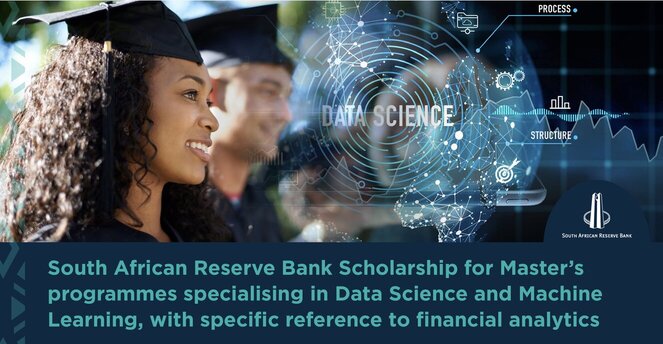
Unlocking the Future: My Journey Through Machine Learning Scholarships
I remember the exact moment the world of machine learning truly clicked for me. It wasn’t in a sterile lecture hall, but late one night, hunched over my old laptop, trying to make sense of a dataset. The code was messy, the errors were plentiful, but when that first simple algorithm finally, finally, made a halfway decent prediction, a spark ignited. It felt like I’d just glimpsed the future, a place where machines could learn, adapt, and help us solve some of humanity’s toughest problems. I knew, right then, that this was where I wanted to be.
But passion, as I quickly learned, doesn’t pay tuition fees or living expenses. My dream of diving deeper into machine learning, perhaps pursuing a master’s or even a Ph.D., felt like a distant star, beautiful but impossibly far away. Money was tight, and the thought of accumulating student loan debt was a heavy cloud. That’s when I started hearing whispers, then louder conversations, about something called "scholarships." I’d always assumed scholarships were only for the absolute prodigies, the straight-A geniuses who also captained sports teams and cured diseases in their spare time. I was just a regular person, albeit one with a burning desire to understand neural networks. Could someone like me actually get one?
The initial search was overwhelming. It felt like sifting through a colossal haystack for a needle I wasn’t even sure existed. Every university website seemed to have a different portal, every foundation a unique set of criteria. There were terms like "merit-based," "need-based," "research grants," "fellowships," and "bursaries." It was a jargon jungle. My first piece of advice to anyone starting this journey is simple: don’t get discouraged by the sheer volume of information. Think of it as a treasure hunt, and every piece of information, even a dead end, brings you closer to the map.
What I quickly realized was that machine learning, being such a cutting-edge and rapidly evolving field, had a surprising number of dedicated funding opportunities. Companies were eager to invest in future talent, governments understood the strategic importance of AI and ML, and universities wanted to attract the brightest minds to their research labs. This wasn’t just about grades; it was about potential, about demonstrating a genuine interest and a willingness to contribute. It was about telling my story.
My own scholarship quest became a part-time job. After my classes, I’d dedicate hours to scouring databases like Fastweb, Scholarship.com, and university-specific pages. I also looked at professional organizations like the IEEE and ACM, which sometimes have their own grants. What truly broadened my search was looking beyond generic scholarships and specifically targeting those that mentioned "artificial intelligence," "data science," "machine learning," "computational intelligence," or even related fields like "robotics" or "natural language processing." This specificity was key. I wasn’t just looking for any money; I was looking for money that understood my path.
One of the biggest eye-openers for me was understanding the different types of scholarships. There were the big, prestigious ones, often government-funded or from major tech companies, that covered everything. Then there were smaller, but equally valuable, departmental scholarships within universities, sometimes tied to a specific research project or professor. I also found scholarships aimed at promoting diversity in tech, which was encouraging, as the field desperately needs more varied perspectives. Don’t overlook these; they often have less competition and a highly focused mission. I remember applying for one that was specifically for students interested in the ethical implications of AI – a niche, yes, but perfectly aligned with some of my own thoughts on the subject.
Crafting the application was an art form I had to learn from scratch. It wasn’t enough to just list my achievements. I had to weave them into a compelling narrative. My grades weren’t always stellar in my early undergraduate years, but I had a clear upward trend, especially once I found my passion in computer science. I made sure to highlight that progression, showing growth and dedication. For my personal statement, I didn’t just write about what I wanted to study; I wrote about why. I talked about that late night coding session, the feeling of discovery, and my vision for how machine learning could impact healthcare, a topic I felt strongly about. I shared anecdotes, not just dry facts. I wanted the people reading my application to feel my enthusiasm, to see the person behind the transcript. This, I believe, was crucial. They weren’t just funding a student; they were investing in a future researcher, an innovator, a problem-solver.
Letters of recommendation were another vital piece of the puzzle. I made sure to ask professors who knew me well, not just those I got good grades from. I approached them early, providing them with my resume, a draft of my personal statement, and a clear list of the scholarships I was applying for. This way, they could write a letter that wasn’t generic, but tailored to my aspirations and the specific scholarship’s requirements. A professor who could speak to my persistence in debugging a complex algorithm, or my insightful questions in a seminar, was far more valuable than one who only knew my name and a grade. I learned that making it easy for your recommenders to write a strong letter for you is half the battle.
My resume and portfolio were my silent advocates. Beyond academic achievements, I made sure to list every relevant project, no matter how small. A simple classification model I built for a hackathon, an online course certification from Coursera or edX on deep learning, even a personal project where I tried to predict housing prices using a basic neural network – all of it went in. These projects showed initiative, a willingness to learn outside the classroom, and a practical understanding of machine learning concepts. Many scholarship committees want to see that you’re not just a good test-taker, but someone who actively engages with the field. For machine learning, this hands-on experience is often more persuasive than theoretical knowledge alone. I even included my GitHub link, hoping they might peek at my code (and secretly hoping they wouldn’t judge my early, messy attempts too harshly!).
Networking, though it felt daunting at first, also played a subtle but significant role. Attending university seminars, connecting with professors during office hours, and even reaching out to alumni on platforms like LinkedIn opened doors. Sometimes, these interactions didn’t lead directly to a scholarship, but they provided invaluable advice, pointed me towards specific research groups with funding, or even resulted in a professor mentioning my name to a colleague who had a research grant. It’s about building relationships, showing genuine interest, and being open to opportunities. I remember one professor, after a particularly engaging conversation about reinforcement learning, casually mentioning a small university fund for students looking to attend a specialized ML conference. I applied, got it, and that experience further enriched my profile for later, larger scholarship applications.
The path wasn’t always smooth. I faced rejections, more than I care to count. Each "We regret to inform you" email felt like a punch to the gut. There were moments of doubt, where I questioned if I was truly good enough, if I was wasting my time. But I learned to treat each rejection not as a failure, but as feedback. It forced me to re-evaluate my applications, to refine my essays, to seek out different kinds of opportunities. I realized that a rejection often wasn’t personal; it was just a mismatch, or perhaps another applicant’s story resonated more strongly with that particular committee. Persistence became my superpower. I kept applying, kept refining, kept believing.
And then, one day, an email arrived that changed everything. It wasn’t from a giant tech company or a prestigious government program, but from a university department I had applied to for a master’s program. It was a partial scholarship, covering a significant portion of my tuition, and included a research assistantship that would provide a living stipend. I remember staring at the screen, reading and re-reading the words, a wave of relief washing over me. It wasn’t the "full ride" I had dreamed of, but it was enough. It was enough to make my dream a reality, to finally dive headfirst into the world of machine learning without the crushing burden of financial worry.
That scholarship didn’t just pay for my education; it bought me time. Time to focus on my studies, to immerse myself in complex algorithms, to collaborate with brilliant minds, and to contribute to cutting-edge research. It opened doors to conferences, provided access to resources I wouldn’t have otherwise had, and perhaps most importantly, gave me the confidence to push my boundaries. It validated my passion and told me, in no uncertain terms, that my dream was worth pursuing.
For anyone out there dreaming of a future in machine learning but worried about the financial hurdles, please, take heart. The opportunities are out there, waiting to be discovered. Start early, even if you’re just beginning your undergraduate studies. Build a strong academic foundation, but don’t stop there. Get your hands dirty with projects, participate in hackathons, and take online courses. Develop a compelling narrative for your personal statements – tell your unique story, your journey into machine learning, and your aspirations for how you’ll use this powerful technology. Cultivate strong relationships with your professors and mentors. Be meticulously thorough with every application, proofread everything, and tailor each submission to the specific scholarship. And most importantly, develop a thick skin and unwavering persistence. Rejection is part of the process, not the end of the road.
The field of machine learning is exploding, transforming industries and reshaping our world. It needs diverse voices, innovative thinkers, and passionate problem-solvers. If you have that spark, that curiosity, that desire to build the future, don’t let financial constraints hold you back. Go out there, seek those machine learning scholarships, and claim your place in this exciting journey. My own path, from a confused beginner to a funded scholar, is proof that with enough dedication and a good story, those distant stars can indeed be reached. The future is learning, and you can be a part of it.


